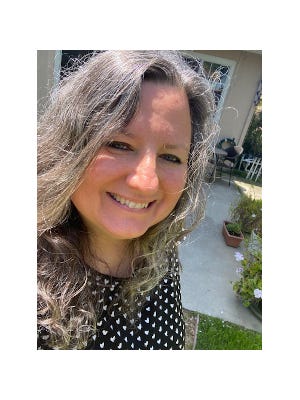Toughening up the supply chain
December 29, 2015
A maker of protective cases extends its products to fortify the pharmaceutical cold chain.
Pelican Products Inc. has provided high-performance protective cases to medical device manufacturers for more than 30 years. The company has custom-molded cases of all sizes for X-ray units, centrifuges, scopes, and other healthcare products.
Working directly with lifescience companies, Pelican representatives learned that some were struggling with what Lyndon Faulkner, president and CEO, calls “sub-standard packaging solutions” for transporting temperature-sensitive pharmaceuticals and biologicals.
“Some companies have been using inferior materials such as cardboard boxes and wooden crates,” says Faulkner. “We were told that there was an opportunity for Pelican to bring our style of protection to the cold chain.”
In August 2012, Pelican Products launched its line of reusable, secure cases featuring control in the 2 to 8° C temperature range. The cases are being marketed by the company’s new BioPharma Division, which also offers service and logistics support, all under Jeff Wodrich, director, business development. Wodrich is a cold-chain industry veteran with more than 17 years of product development, business development, marketing, and project management expertise. The division includes a team of international sales experts and technical engineers.
To determine market needs, David Williams, Pelican’s vice president of strategic initiatives, spent nearly a year interviewing global pharma manufacturers as well as logistics service providers. He also studied the available technologies and even considered potential acquisitions. Williams found that companies were seeking cost-efficient, reliable, secure, and reusable solutions with global support. “We believe we found inadequacy in solutions, and those that did exist were on a small scale. So we came back with a specific list of challenges and decided to tackle them internally.”
Williams learned that companies were also unhappy with the amount of time needed for packout and for conditioning phase-change materials. “We heard complaints that many currently available passive systems were too complex, taking too long to assemble, with too many components,” says Williams. “And companies were unhappy with the amount of bench time needed to freeze phase-change materials and then to bring them back up to 2 to 8° C.” Companies were also concerned about preventing products from freezing.
Companies were also using active systems, but some found them to be expensive. “The larger, active freight containers have their place, but they are expensive for small quantities,” says Williams. “Companies have been using them for their reliability, but many are only 2/3 full, so they can be costly.” In addition, active systems could present logistical challenges, says Faulkner, “because many need to be plugged in while on the tarmac.”
Pelican decided to adapt its standard protective case design to the pharmaceutical cold-chain market, explains Faulkner. “It features our rugged shell with internal modifications to support thermal control.” The exterior is made from a proprietary polymer.
Pelican’s first two cases are the BP 2620 Medium Case and the BP 3075 Large Case, both featuring 140-plus hours of temperature control between 2 to 8° C. Tested according to ISTA 7D, the cases are lined with vacuum insulation panels. In addition, 12 square “bottles”—six with phase-change materials and six acting as buffers—fit together around the product. “Users can pack out the solution in 38 seconds,” says Williams. A smaller case is also being launched.
The cases are airtight and waterproof, thanks to an internal O-ring seal. A pressure-relief valve meets air-transport applications. “Logistics companies like the air tight, waterproof aspect because the cases offer some protection against a HAZMAT situation,” says Williams.
With the support of global logistics partners, the cases will be available for purchase or per-use rental or through long-term leasing models. “It won’t take too many trips to make purchasing a case a low-cost solution,” says Faulkner. Pelican can repair or replace the cases as needed.
In addition, the global network supports reusability and sustainability, says Faulkner. “We have eight of our own sites in the United States for conditioning, servicing, and storing cases, as well as third-party support around the world,” he says. “Through our cases and our network, we can help companies avoid landfill disposal fees in the EU.” Pelican can also provide services for a closed-loop system.
Faulkner says that Pelican’s global footprint is getting a “positive reaction” from global companies. “We see fragmentation in market, but we believe our global network can help.”
While Pelican opted to test according to ISTA 7D profiles, which Williams says “are a bit harder to pass,” it can also test according to pharmaceutical company profiles upon request. The company uses its own testing labs, and welcomes the opportunity to work with other ISTA-certified test labs upon request. “It is important to employ independent labs to verify case performance,” says Faulkner.
The cases feature customs-approved locks, and RFID-enabled GPS systems can be employed for monitoring. Pelican as a Service is also offered, enabling companies to define shipping routes and receive alarms if cases are diverted.
Pelican is developing additional standard cases, to offer other sizes such as pallets as well as maintain frozen or controlled room temperatures. Custom sizes can be accommodated, too, says Williams.
Its current large case can be stacked in groups of four to accommodate U.S. pallets, and the company has even tested stacks of six. “When stacked together they become cost competitive with active systems,” says Williams. “And because you can add or take away cases from a stack depending upon product quantities, you have a flexible solution.”
Pelican Products injection molds the cases in its 180,000-sq-ft facility in Torrance. The location supports nearly 2200 SKUs in Pelican’s protective case and durable lighting solutions lines. It recently updated several of its case molding and assembly lines to reduce cycle times and on-site inventory, expediting shipments of finished goods to its distribution centers. It has also automated several processes to expedite production, reduce changeover times, and eliminate injury risks, all the while maintaining its current staffing levels.
About the Author(s)
You May Also Like




